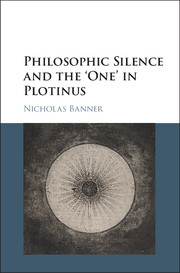Book contents
- Frontmatter
- Contents
- Preface
- List of Abbreviations
- Introduction
- PART I The Cultural Roots of Platonist Philosophic Silence
- 1 De philosophorum Græcorum silentio mystico: Preliminaries
- 2 The Silent Philosopher
- 3 Perennial Wisdom and Platonist Tradition
- 4 Plotinus and ‘The Ancients’: Tradition, Truth and Transcendence
- PART II The Transcendent Absolute, the Ineffable and Plotinian Poetics of Transcendence
- Conclusion
- Appendices
- Select Primary Bibliography
- Secondary Bibliography
- Index
3 - Perennial Wisdom and Platonist Tradition
from PART I - The Cultural Roots of Platonist Philosophic Silence
Published online by Cambridge University Press: 16 March 2018
- Frontmatter
- Contents
- Preface
- List of Abbreviations
- Introduction
- PART I The Cultural Roots of Platonist Philosophic Silence
- 1 De philosophorum Græcorum silentio mystico: Preliminaries
- 2 The Silent Philosopher
- 3 Perennial Wisdom and Platonist Tradition
- 4 Plotinus and ‘The Ancients’: Tradition, Truth and Transcendence
- PART II The Transcendent Absolute, the Ineffable and Plotinian Poetics of Transcendence
- Conclusion
- Appendices
- Select Primary Bibliography
- Secondary Bibliography
- Index
Summary
Fabulae et symbola verum et demonstrant et tegunt, produnt et tacent.
Casel 1919, 91, on Plutarch.Plotinus describes himself, not as an innovative thinker or the founder of any philosophical system, but as an exegete of ‘the ancients’. He tells his readers: ‘Our doctrines are not novel, nor are they modern: they were said long ago, but not openly. Our present doctrines are explanations of those older ones, and the words of Plato himself show that they are ancient.’ It is widely agreed that Plotinus was indeed engaged in exegesis of a philosophic textual tradition owing its greatest debt to the Platonic dialogues, and his work, while usually described as ‘Neoplatonist’, is better described simply as ‘Platonist’. Plotinus would not have understood the term ‘Neoplatonist’, and saw himself as a philosopher in the same tradition as Plato.
But a further aspect of Plotinus’ express view of his philosophical project, encapsulated in the quotation above, is that his doctrines are not presented as ‘Platonist’ doctrines; they are presented as explanations of ancient logoi, stemming from a deeper tradition of which Plato is himself a part, rather than an originator. In other words, Plato is seen as a strong exemplar of the philosophy of the ancients, and by showing that one is in agreement with Plato, one can show that one is in agreement with that philosophy.
An aspect of the problem of ineffability not yet touched upon is the problem of transmission; how might a textual or other tradition discuss, teach, or otherwise transmit knowledge of the unthinkable, the unsayable? One possible answer to this question is suggested by the structures of Platonist philosophy: since the Forms are eternal truths, access to the Forms (and, for Plotinus, access to nous, the location of the Forms) guarantees the philosophic seeker an atemporal, unchanging reservoir of truth upon which he may draw through personal philosophic anagôgê. This method of accessing the truth is insisted upon by Plotinus, and much in the Enneads may be read as detailed instructions for attaining to this type of knowledge; the texts of Plato and other great philosophers would then be the textual concomitant of this philosophic truth. But texts transmit knowledge; what tradition can transmit that which transcends knowledge and speech?
- Type
- Chapter
- Information
- Philosophic Silence and the ‘One' in Plotinus , pp. 86 - 124Publisher: Cambridge University PressPrint publication year: 2018



